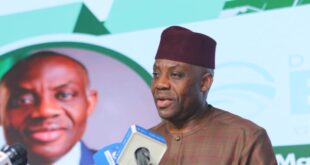The recent collapse of the National Super Alliance (NASA) comes just in time for the run up to the next general election in 2022. The Coalition for Reforms and Democracy (CORD) and the National Rainbow Coalition (NARC) before it, suffered a similar fate. Each coalition disintegrating in the run up to a major election. The current ruling Jubilee Coalition on the side of the government, which brought together United Republican Party (URP) and The National Alliance (TNA), seems destined to collapse. Why do Kenyan political coalitions collapse before major elections? Prof David Monda explains
Political coalitions in Kenya are centered around personalities and not policy. Looking at the Jubilee coalition for instance, its target in 2013 was to ensure the survival of two personalities, President Uhuru Kenyatta and his deputy William Ruto. The ambitions of the two politicians converged around defeating the threat of the International Criminal Court (ICC) crimes against humanity charges that faced them in the Hague. Why did the Jubilee coalition not collapse in the run up to the 2017 election? Because the Jubilee coalition was centered around the interests of the personalities of the president and his deputy in retaining power for five more years.
For Uhuru Kenyatta, an additional term in office would consolidate his legacy and the name of the family dynasty. For his deputy, the 2017 election revolved around reinforcing the handover of the reigns of the presidency into the “safe hands” of William Ruto, while reinforcing Uhuru’s promise to hand over the presidency to Ruto in 2022.
What is different in the run up to the 2022 election? The fact that the president no longer needs the deputy president’s voting bloc in 2022. Uhuru Kenyatta will not be running for reelection. The Jubilee coalition has served its purpose and its value is now moot.
Secondly, the structure of political parties in Kenya reinforces the short-lived nature of coalitions. Political parties are formed as vehicles to gain political power rather than vehicles to transform public policy via ideological frameworks. In political systems where parties form coalitions based on ideology, certain political formations are untenable.
For instance, a left of center socialist party would not join arms with a right of center party. A religious party would not coalesce with a communist party because of ideological and value differences. In other words, ideology comes before individuals in accessing power.
The structure of political parties in Kenya, puts individuals before any programmatic ideology that drives public policy. This is part of the reason that slogans like “Okoa Kenya” and “hustler narrative” do not have any traction. They are mere slogans and have no political ideology to shape public policy. The private interests of politicians that form these parties trump any ideology.
Thirdly, political parties collapse before major elections because of the realignment of patron-client relationships in Kenya’s ethnic constituencies. A historical legacy of the dysfunction of the Kenyan state.
Access by an individual Kenyan’s co-ethnic provides a presumption of access to the largess of the state. The patrons in the Kenyan political context are the politicians being elected. The clients are the voters. During campaigns, voters demand material benefits and access to power from their co-ethnic political patrons. In return for material benefits, the patrons expect votes from the clients (electorate) in the co-ethnic’s region. This shifts political dynamics and makes political coalitions ad hoc.
Lastly, the caveat that allows politicians to run as independent candidates makes the ideological basis for running for office on a political party ticket meaningless. It makes party discipline difficult because party members know if they do not win the party nomination, they can always leave the party and run as an independent. It deemphasizes the centrality of the role of political parties in organizing politics, providing candidates for office, and differentiating policy positions on core areas of public policy for the electorate.
Ironically, it also turns independents into clients demanding patronage from successful party ticket bearers (patrons) who want to avoid long expensive legal suits or electoral challenges. This further contributes to the collapse of political coalitions before major elections due to the constant shifting of political players between parties. Political dynamics change. Be ready for more break ups in coalitions and the formation of others as the clock winds down to the 2022 elections.
Prof Monda teaches political science, international relations, and American government at the City University of New York (York College), New York, USA. He can be reached at dmonda1@york.cuny.edu
 THE AFRICAN COURIER. Reporting Africa and its Diaspora! The African Courier is an international magazine published in Germany to report on Africa and the Diaspora African experience. The first issue of the bimonthly magazine appeared on the newsstands on 15 February 1998. The African Courier is a communication forum for European-African political, economic and cultural exchanges, and a voice for Africa in Europe.
THE AFRICAN COURIER. Reporting Africa and its Diaspora! The African Courier is an international magazine published in Germany to report on Africa and the Diaspora African experience. The first issue of the bimonthly magazine appeared on the newsstands on 15 February 1998. The African Courier is a communication forum for European-African political, economic and cultural exchanges, and a voice for Africa in Europe.

































